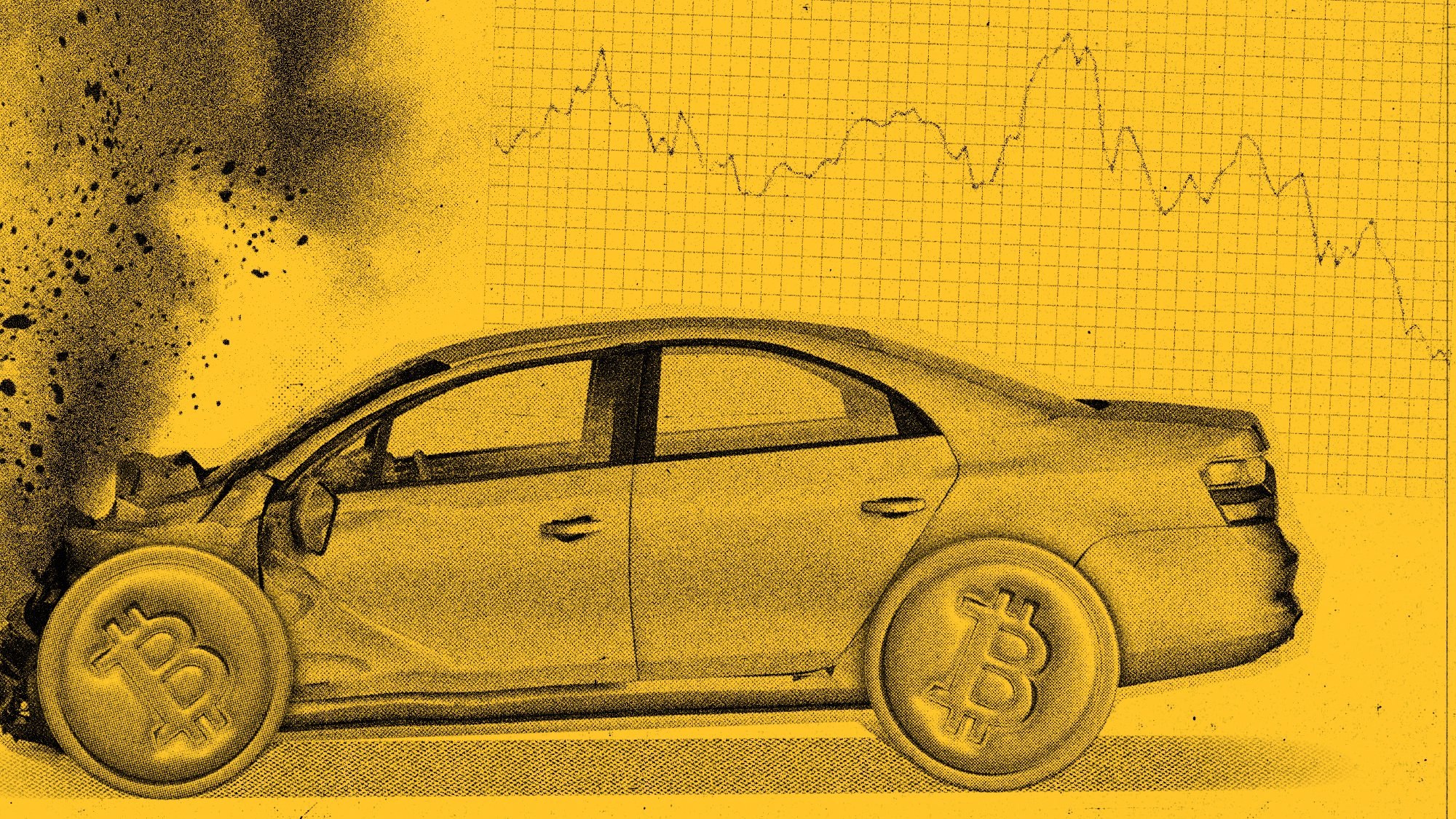Cryptocurrency: Here come the regulators
Why the government is cracking down on crypto

A free daily email with the biggest news stories of the day – and the best features from TheWeek.com
You are now subscribed
Your newsletter sign-up was successful
The smartest insight and analysis, from all perspectives, rounded up from around the web:
"The sun may be setting on the cryptocurrency craze," said Michael Hiltzik in the Los Angeles Times. Crypto's decline from a peak market capitalization of more than $3 trillion in late 2021 to about $800 billion today means that late-stage investors likely reaped "enormous losses." And now, initiatives in Congress that were aimed at liberalizing the crypto market "appear to be running out of steam" as regulators have "tightened the screws." Evangelists for the new form of currency had claimed it was a financial innovation that would allow those on the margins of the financial system to prosper. But after 14 years of bubbles and scams, it's become clear that crypto is merely a speculative asset, something to buy in the hope that someone else will buy it for more. That's "often described as the 'greater fool' theory." What the unbanked really need are simple and inexpensive ways to save their money, but crypto transactions, bristling with hidden fees, "tend to be just the opposite."
"Crypto's free pass is getting yanked" because of the sudden failure of crypto exchange FTX last year, which lost investors billions, said Yueqi Yang, Katanga Johnson, and Austin Weinstein in Bloomberg. To prevent a repeat of the 2008 financial crisis, authorities are now trying to "build a wall" between the crypto trading market and the banking and securities markets. The Federal Reserve and other top financial regulators jointly issued a blunt New Year's warning to banks to ensure that "crypto-related risks" don't affect the banking system, and since then regulatory actions have come thick and fast. In late January, the Fed barred crypto firm Custodia Bank from "coveted access to the central bank's payment system." In just the past week, the SEC fined a crypto promoter and sued a startup that issued digital coins, while New York's financial services department ordered the company Paxos to stop issuing BUSD, a popular stablecoin.
The Week
Escape your echo chamber. Get the facts behind the news, plus analysis from multiple perspectives.

Sign up for The Week's Free Newsletters
From our morning news briefing to a weekly Good News Newsletter, get the best of The Week delivered directly to your inbox.
From our morning news briefing to a weekly Good News Newsletter, get the best of The Week delivered directly to your inbox.
In response, bankers "are re-evaluating any exposure to the crypto sector, no matter how small," said Rachel Louise Ensign and David Benoit in The Wall Street Journal. Banks that were once "deep into crypto" are reducing or even eliminating their exposure, while those that kept their distance are now actively "shunning customers" with crypto ties. This restructuring is bringing to light the extent to which crypto businesses that pitched themselves as an alternative to banks still rely on those institutions for access to hard currency. When Citigroup Inc. "abruptly closed" the account of Swan Bitcoin, for example, the company had to scramble to pay its employees.
This "aggressive government crackdown" has caused "outrage and anxiety" in the crypto industry, said David Yaffe-Bellany in The New York Times. Kristin Smith of the Blockchain Association, an industry group, called it a "crypto carpet bombing." After the SEC reached a settlement with the U.S. crypto exchange Kraken, removing one of its products from the market, the company's founder briefly "posted an obscene meme" about the agency's chief. And this upheaval won't end any time soon. Industry lawyers say the spate of enforcement is likely just "a prelude to a protracted spell of legal wrangling."
This article was first published in the latest issue of The Week magazine. If you want to read more like it, you can try six risk-free issues of the magazine here.
A free daily email with the biggest news stories of the day – and the best features from TheWeek.com
-
 Corruption: The spy sheikh and the president
Corruption: The spy sheikh and the presidentFeature Trump is at the center of another scandal
-
 Putin’s shadow war
Putin’s shadow warFeature The Kremlin is waging a campaign of sabotage and subversion against Ukraine’s allies in the West
-
 Media: Why did Bezos gut ‘The Washington Post’?
Media: Why did Bezos gut ‘The Washington Post’?Feature Possibilities include to curry favor with Trump or to try to end financial losses
-
 Trump wants a weaker dollar, but economists aren’t so sure
Trump wants a weaker dollar, but economists aren’t so sureTalking Points A weaker dollar can make imports more expensive but also boost gold
-
 The longevity economy booms as people live longer
The longevity economy booms as people live longerThe Explainer The sector is projected to reach $27 trillion by 2030
-
 Texas is trying to become America’s next financial hub
Texas is trying to become America’s next financial hubIn the Spotlight The Lone Star State could soon have three major stock exchanges
-
 Why is crypto crashing?
Why is crypto crashing?Today's Big Question The sector has lost $1 trillion in value in a few weeks
-
 How could worsening consumer sentiment affect the economy?
How could worsening consumer sentiment affect the economy?Today’s Big Question Sentiment dropped this month to a near-record low
-
 Musk wins $1 trillion Tesla pay package
Musk wins $1 trillion Tesla pay packageSpeed Read The package would expand his stake in the company to 25%
-
 From candy to costumes, inflation is spooking consumers on Halloween this year
From candy to costumes, inflation is spooking consumers on Halloween this yearIn the Spotlight Both candy and costumes have jumped significantly in price
-
 What are stablecoins, and why is the government so interested in them?
What are stablecoins, and why is the government so interested in them?The Explainer With the government backing calls for the regulation of certain cryptocurrencies, are stablecoins the future?